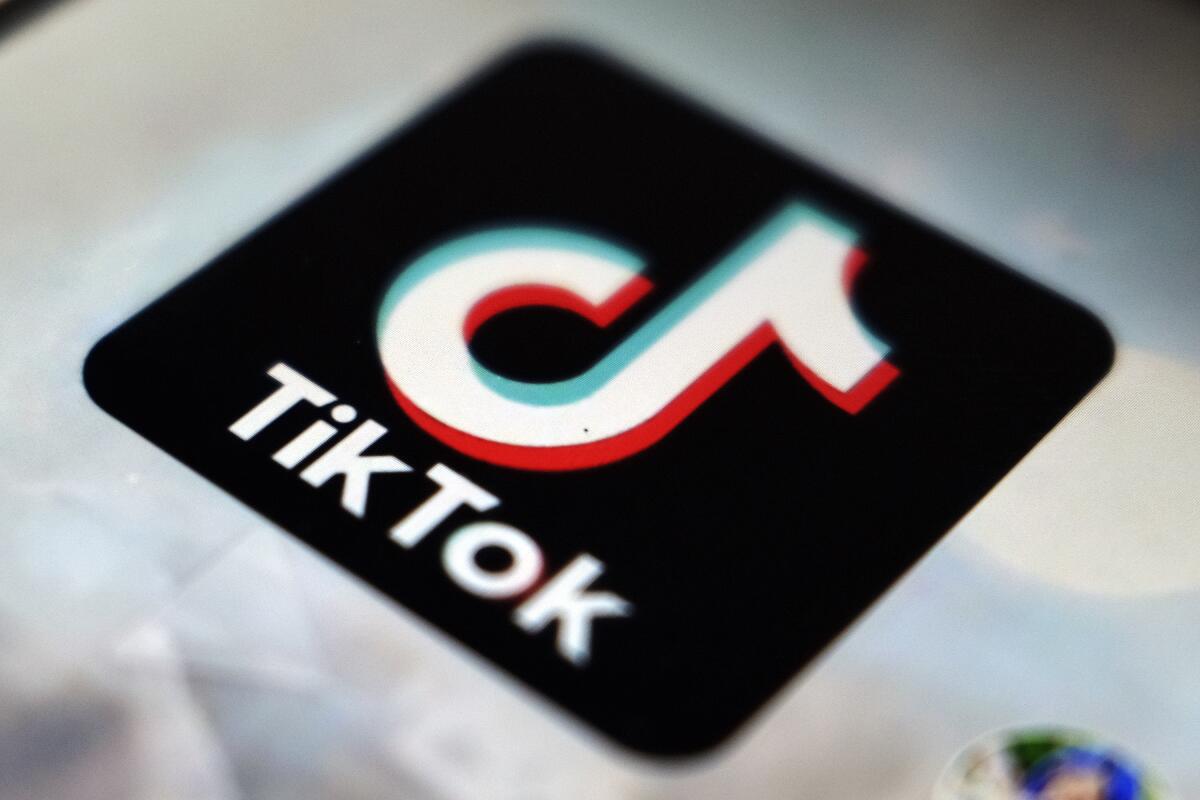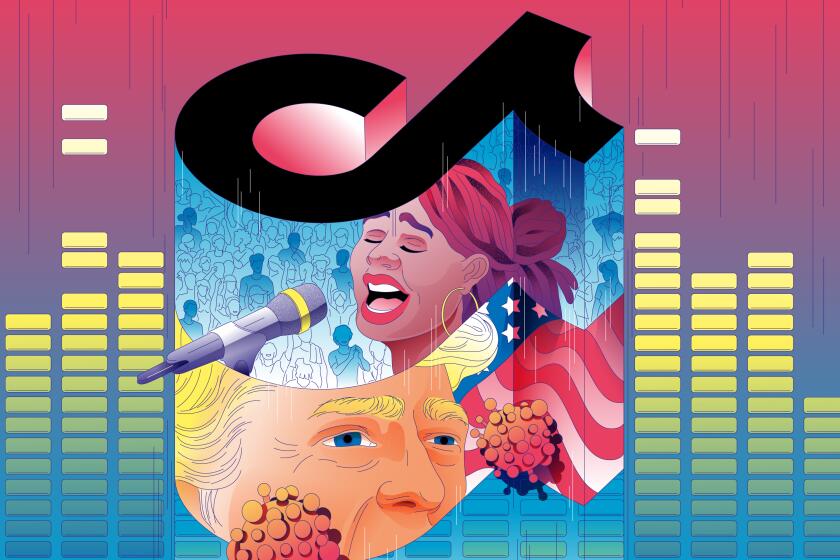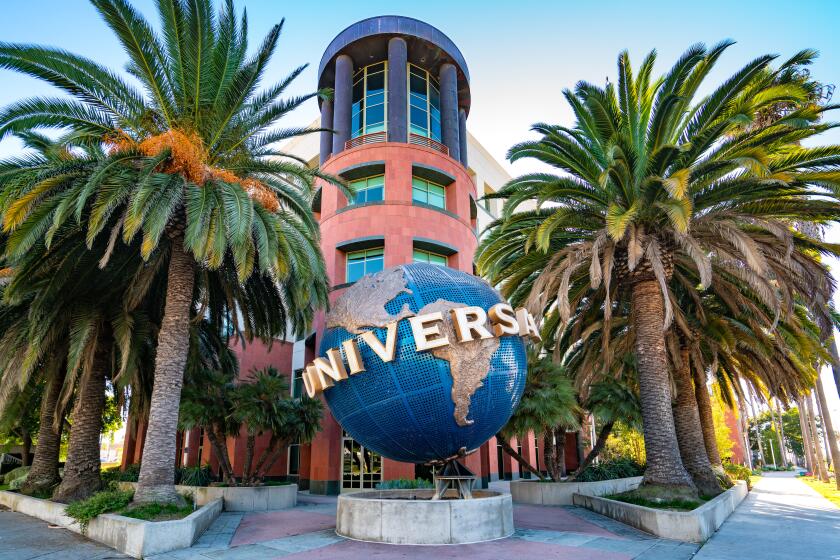Universal Music Group, Taylor Swiftâs label, says it will pull tunes from TikTok

Universal Music Group, the worldâs biggest music company, is threatening to pull its tunes from TikTok over a licensing dispute.
The two companies have yet to reach a new music rights agreement to replace the one that expires Wednesday.
Santa Monica-based UMG and Chinese-owned TikTok made an agreement in 2021 that allowed the popular video-based social media platform access to UMGâs recorded music from artists on its labels, as well as songwriters with Universal Music Publishing Group.
Artists on UMG labels include Billie Eilish, Olivia Rodrigo, Taylor Swift and Ice Spice.
If UMG were to remove its music, it would be a blow to TikTok users, who generate videos that often feature popular songs. Labels and artists benefit from licensing music to TikTok, which helps them market new and old songs. Trending videos can often boost the popularity of an artist whose work is used as accompaniment.
âWhen it comes to licensing music for social media, negotiations tend to play out as a battle of who needs the other more,â said Tatiana Cirisano, music industry analyst at MIDiA Research. âOne side of the argument is that social platforms are an indispensable promotional tool for music; the other is that the platforms couldnât exist without music. Taking the nuclear route of pulling all UMG music from TikTok reads as an attempt to prove the latter.â
Ever since TikTok launched its in-app shopping feature, creators have flooded the platform with product testimonials. Why are they so dang convincing?
UMG said in an open letter that it had several concerns about the TikTok deal, including the royalty rate that the social video company proposed paying artists, how TikTok manages its content moderation and that there were not enough financial protections for artists regarding AI-generated music.
âUltimately TikTok is trying to build a music-based business, without paying fair value for the music,â UMG said in its letter.
UMG also accused TikTok of bullying it to accepting a deal that was worth less than its previous agreement and removing music of certain UMG developing artists.
âTikTokâs tactics are obvious: use its platform power to hurt vulnerable artists and try to intimidate us into conceding to a bad deal that undervalues music and shortchanges artists and songwriters as well as their fans,â UMG said in its letter.
TikTok called UMGâs actions âself-servingâ and ânot in the best interests of artists, songwriters and fans.â
âIt is sad and disappointing that Universal Music Group has put their own greed above the interests of their artists and songwriters,â TikTok said in a statement. âDespite Universalâs false narrative and rhetoric, the fact is they have chosen to walk away from the powerful support of a platform with well over a billion users that serves as a free promotional and discovery vehicle for their talent. â
TikTok has become the single most important platform for generating new pop-music hits. But can it help mint stars, or just one-hit wonders?
TikTok is a major source of music discovery, especially for teens, Cirisano said. In MIDiAâs surveys, it reflects that TikTok is the second most popular source of music discovery for 16-19-year-olds behind YouTube, she added.
âThis new generation isnât satisfied to simply consume music â they want to play an active role in it, which is what makes TikTok creation so appealing,â Cirisano said. âSo it is certainly a risk for any label to pull their music, although again, itâs a risk the biggest record company in the world is willing to take. Plus, in all likelihood, it wonât be forever.â
Over the years, UMG has made deals with other social media platforms, including Facebook and YouTube. TikTok also has deals with other labels and publishers.
A number of entertainment companies, including Pixar, Amazon Prime Video, Universal Music Group and Twitch, are facing layoffs in the new year.
More to Read
Inside the business of entertainment
The Wide Shot brings you news, analysis and insights on everything from streaming wars to production â and what it all means for the future.
You may occasionally receive promotional content from the Los Angeles Times.














